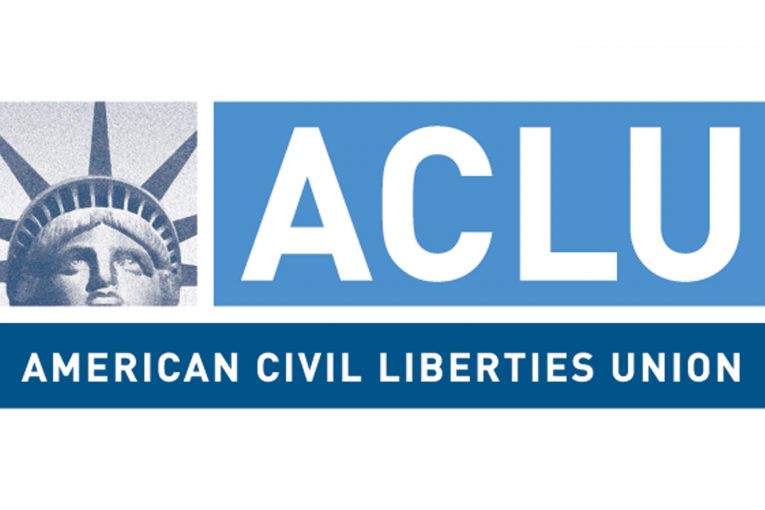

By Paloma Sifuentes and Rena Abdusalam
TRENTON, NU – The ACLU of New Jersey along with 25 other social justice advocate partners wrote a letter this holiday week to New Jersey state lawmakers, noting their opposition to so-called “tough on crime legislation.”
This legislation would produce mass incarceration similar to 1980’s and 1990’s rates, as well as push back successful criminal legal reforms, the groups claim.
The Deputy Policy Director of the ACLU of New Jersey, Jim Sullivan, stated, “Lawmakers must remember that in 2014, New Jersey voters took decisive action to virtually end cash bail and replace it with a system that has been held out nationwide as ‘a model for other states.’”
He said if the new tough-on-crime legislation were to pass then it would produce a large number of innocent people jailed before trial, mass incarceration and racial disparities in the prisons and jails in New Jersey, because of the attempts to roll back bail reform.
Sullivan also said tough-on-crime policies are based on bias, inaccurate claims and long exploited racial tropes rather than evidence data or justice.
“These policies are for political gain at a large human cost…the people want a justice system that is not racially biased and focuses on smart crime policies. Now is the time for New Jersey to build on its historic decarceration and decriminalization efforts—not roll them back,” he added.
The Founding Director of Salvation and Social Justice, Reverend Charles F. Boyer, commented, “New Jersey needs a legislature that responds to the needs and concerns of communities with data informed legislation rather than legislation that continues to be driven by punitive and draconian narratives.”
He added legislation such as S3347, 2022-2023 … will not produce safer communities or prevent crime, they will rather produce racial disparities in New Jersey and a large disproportionate number of African Americans in the prison industrial complex.
Legislation S3347 imposes sanctions with respect to persons who are responsible for or complicit in abuses towards dissidents on behalf of the Government of Iran.
The Executive Director of New Jersey Alliance for Immigration Justice, Amy Torres, said, “’Tough-on-crime’ proposals serve only one purpose: to distract the public. Hysterical proposals like the ones recently introduced in the legislature are designed to distract from the failure to pass transformative policies that build the social safety net.”
Torres added the state of New Jersey “needs to break away from the racial hysterias that are producing these policies and take the responsibility to invest in its people.”
Director of Advocacy and Communications of Fair Share Housing Center, Alex Staropoli, said: “Real community safety comes from investments in housing, healthcare, food, and education. Bringing back misguided ‘tough-on-crime’ policies from our past will only harm communities of color and further entrench racial disparities that are already so problematic in our state.”
She added it is not the time to go backwards and instead, work toward a future that includes real solutions to the problems communities are facing.
Marleina Ubel, Policy Analyst and State Policy Fellow of New Jersey Policy Perspective, noted the bills are not based on data, but instead, are a knee-jerk response that will only cause the criminalization of more people.
“Equating motor vehicle theft to violent crime is reminiscent of the kind of ‘tough-on-crime’ approach that exacerbates mass incarceration while failing to actually get to the root of the problem,” she said.
Organizer of N-CAP and NJ-CAP, Zayid Muhammad, said, “We demand that the Legislature unite to move forward and continue the work of criminal justice and police reform, rather than backslide and criminalize community members.”
Muhammad stated that after the murders of George Floyd and Breonna Taylor, the legislators were committed to public safety change, calling for the legislators to work with the social justice advocates for real police and criminal legal system reform.
“We urge the state not to resort back to failed knee-jerk policies that despite being promoted as ‘tough on crime,’ in fact, do not reduce crime in the long-term but only perpetuate the vicious cycle of over-incarceration and recidivism, especially for Black and other communities of color,” Director of the Criminal Justice Reform Program of New Jersey Institute for Social Justice, Yannick Wood, said.
“New Jersey needs to build on its successful track record of bail reform and invest in communities and programs that get at root causes if we’re ever going to break this cycle and achieve lasting success. New Jersey has an opportunity to creatively and courageously lead; let’s not squander it,” Wood added.